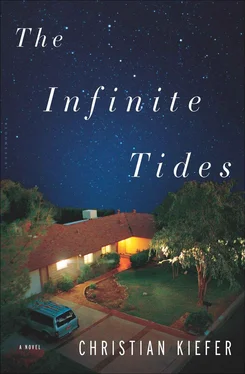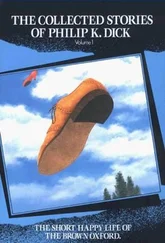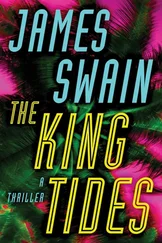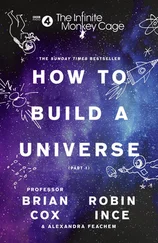The car pulled through the strip of giant parking lots and then the interstate scrolled out before them, uniformly gray and endless. As they drove his mind returned to the comet. He knew its orbit would likely be some huge ellipsis, eccentricity perhaps pushing toward the parabolic, this side of the vast curve hooking through the Hill sphere of the sun, the other flung into the far distance beyond the edge of the solar system, such an orbit turning again and again and again over millions of years, the radius of apoapsis and periapsis unwatched and unmonitored until this moment when the line of one orbit happened to intersect with the line of another. A one-in-a-million chance but still a chance, the mathematics of which could hardly be believed. Two heliocentric orbits, one of which spun, perhaps, on a temporal cycle counted in millions of years, and the two actually intersecting. Even now he could feel the numbers shifting about in the darkness inside of him, filling in along the imaginary lines, circles within circles, parabolas and ellipses hooking and looping as the numbers arrayed themselves dimly along their shadowed paths.
He wondered what the variables would look like. Would Eriksson know anything about it? Maybe he would call him once they reached the beach.
Peter related the interview with Tom Chen in painstaking detail, even going back over the individual sentences and filling in nuance and implication, so much so that a half hour of interview time was rendered into an hour-long description and despite the repetition and convolution of the story Keith found that he continued to be interested. The sound of Peter’s voice made him feel calm and normal and the children in the backseat with their handheld games and occasional explosions of boredom and fatigue were welcome diversions from the long inward turn that had been most of Keith’s time since returning from space, since Quinn’s death, since returning to gravity. Five minutes into the drive the children had begun to ask when they would arrive but now were settled and quiet in the backseat and Luda would periodically bring out little toys from a bag at her feet to settle them during those moments when they became bored with whatever they had been doing.
“You’re a good mother,” Keith said at one point, half turning to look at her.
Luda smiled at him. “I am sorry if they are too loud,” she said.
“They’re not too loud.”
She blushed and smiled, averting her eyes in embarrassment.
“You are right,” Peter said. “She is very good mother. Best mother.” He looked at his wife in the rearview mirror.
Keith told them about the termites and the construction that would need to happen and that he did not know where he was going next or what he was going to do. As if in response, his phone buzzed and he glanced at the screen. Jim Mullins again. He might have been interested in chatting with Eriksson about the rumored comet but he was not interested in being lectured to. He let the call ring through to voice mail and then returned the phone to his pocket.
“Tell us story about your being famous astronaut,” Peter said when the conversation slowed.
“I don’t know,” Keith said hesitantly.
“This is what you say but good time for story.”
“Didn’t you get your fill of that yet?”
“Not so much,” Peter said.
“Maybe he does not want to talk now,” Luda said.
“No, it’s not that,” he said. He paused a moment and then said, “What kind of story exactly?” All around them, the gray wastes of neighborhoods and cul-de-sacs and stores and parking lots continued along the interstate.
“Something that everyone will enjoy,” Peter said.
The kids stopped what they were doing and fell instantly silent. “Yes,” the little boy, Marko, said, his voice high and heavily accented. “Yes, please.”
“Hmm,” Keith said. He thought for a long moment and although he knew they were asking him for something about space, the images that came to his mind were of Quinn’s funeral. “Let me think about it for a bit,” he said.
“OK, you think,” Peter said.
After a time the children took up their game in the backseat again and this time Peter joined in and they picked out colors in the landscape and the others guessed which color he was thinking of and Keith was silent in the front seat as Peter drove.
The freeway had been hemmed by walls as if some ever-flowing concrete aqueduct but those walls fell away now, revealing endlessly sprawling neighborhoods and strip malls linked together by familiarly named giant storefronts in faux-Tuscan architecture with arches and olive branch motifs. Then gone again.
He could not imagine an ocean being at the nether end of this epic suburbia but the fact of it was apparently true: there was an edge to the continent where the landmass lapped up against the sea and the shallows broke into the deeper blue of the ocean and while he had known in some dim part of himself that the ocean was a drivable distance from the empty house, it had never occurred to him to actually go there, as if there was some shift in physical dimension or desire that needed to be satisfied in order for the act to be undertaken at all, not in terms of motion but in terms of the idea itself.
He had only been to the beach a half dozen times, all of these when he was doing his graduate work at Stanford and they would drive out Sand Hill Road and through Woodside to the cold Northern California ocean at Half Moon Bay and he and Barb would watch Quinn run back and forth across the surf and he would try to keep his daughter as dry as possible given the near-constant chill rolling in off the Pacific, an impossible goal set along that endless strip of gray sand. Those were the short days when they were still clearly a family, the three of them, parents with a child, a toddler quickly growing out of those years and unsteadily careening up and down the surfline on sturdy bowlegs. If anything had ever been said between them, husband and wife, he could not recall, the memories mute and blissful and empty. All such memories now seemed spliced into the images of the funeral: the ocean lapping against the heels of the mourners, the tide spilling into the grave.
Now in the front seat of Peter’s car with his wife and children in the backseat and Peter asking him to tell a story: What story was there to tell? Everything in his life had telescoped into guilt and bereavement and a kind of emptiness that he still did not entirely understand. What was there to understand in the end?
Everything you have ever known will one day rise like smoke. The dreams and desires you have had or will have. Even now. This was no different. Nor could it be.
“We want a story,” Marko said from the backseat.
Keith could hear Luda’s voice quieting her son and a moment later the entire car fell silent. He thought he should tell them about how his marriage had failed without his notice, about how the decisions he had made had been the wrong ones, about how his daughter had been killed while he was floating in an oxygen-filled chamber two hundred and seventeen miles above the surface of Earth. He thought he should tell them that the moment he had worked so hard to achieve had only taught him what he could not understand, that the universe was beyond anything he could ever articulate, and that the one person who might have understood that idea was already gone. He thought he should tell them that he had failed her, that he had failed himself, that he had failed his team and NASA and so had failed everyone and there was to be no answer, instead only the thin burning whine and agony of his migraines and the long and unanswerable questions that would extend on before him forever and would never find an end.
The children in the backseat silent and expectant and he could feel their eyes against the back of his head, waiting for him to begin even as his phone began to vibrate once more. He knew there was a story he could tell them — the same story he had told Nicole — but he knew it was not really the truth, at least not as he had experienced it.
Читать дальше












